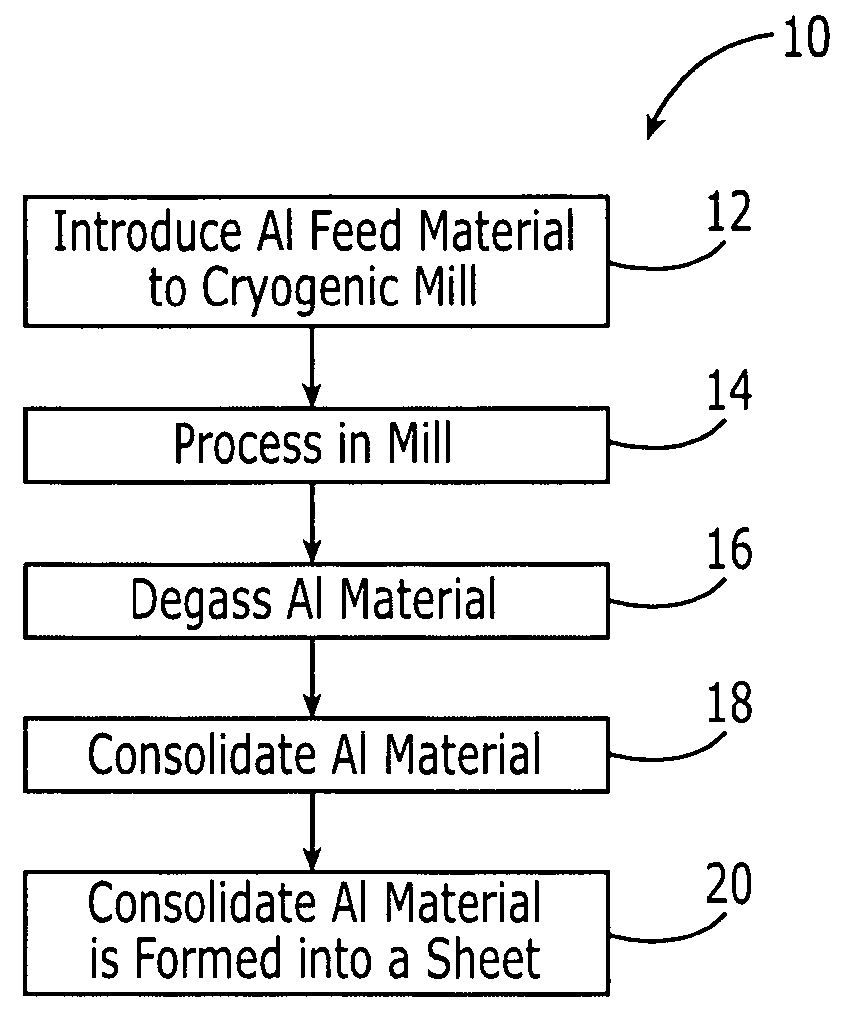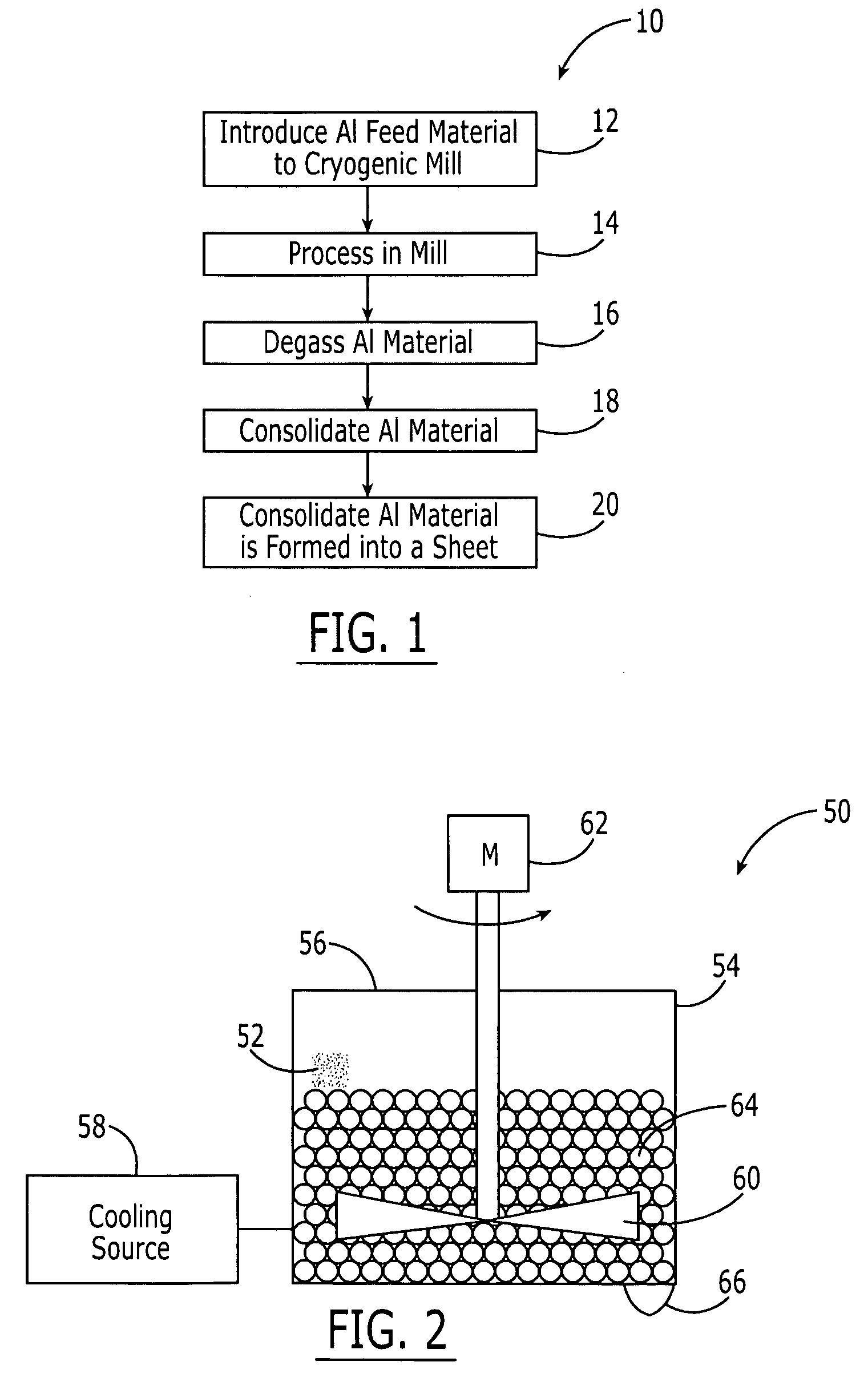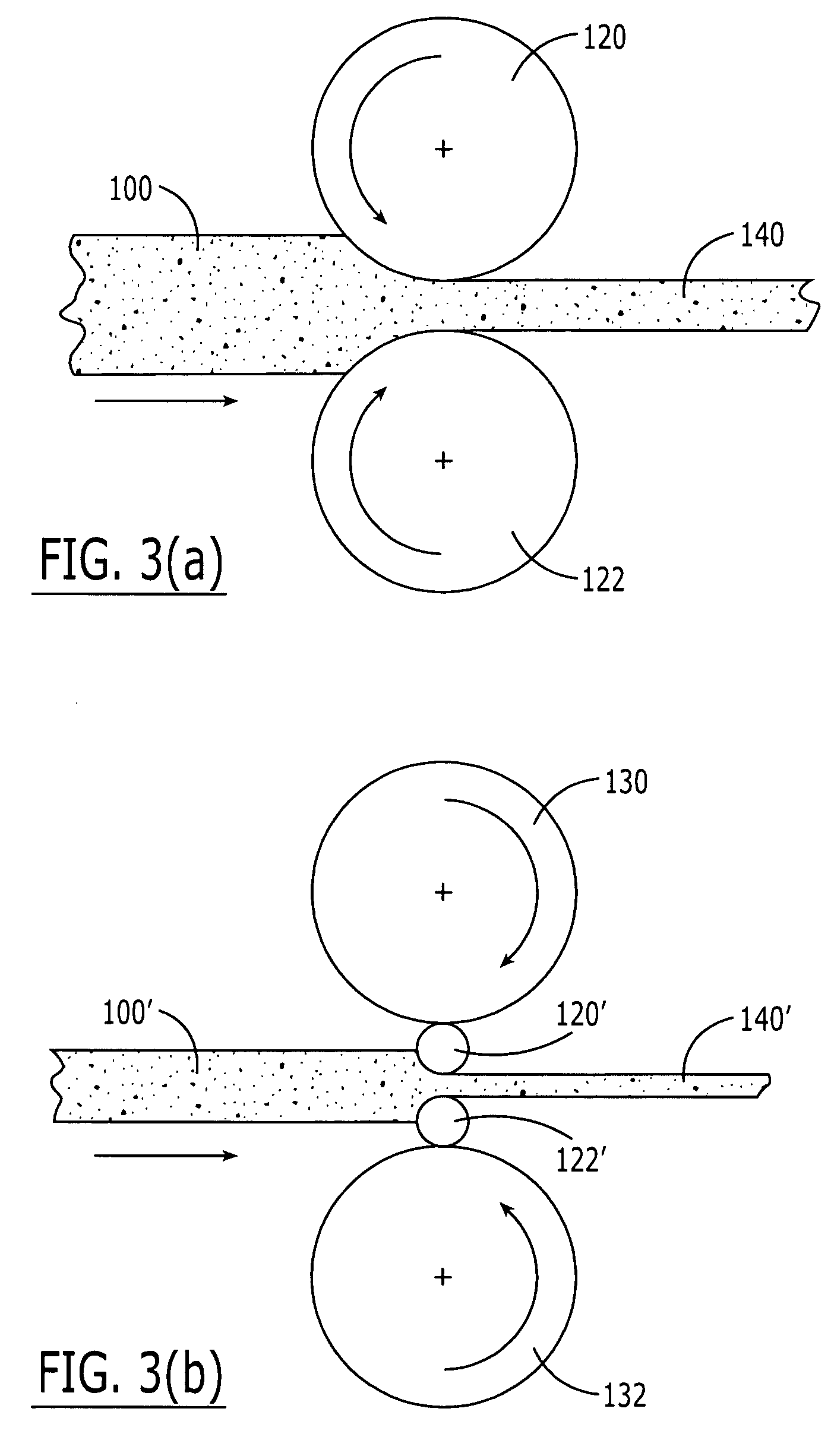Method for preparing high-temperature nanophase aluminum-alloy sheets and aluminum-alloy sheets prepared thereby
a technology of aluminum alloy and nano-phase, which is applied in the direction of material nanotechnology, transportation and packaging, cryogenics, etc., can solve the problems of water quenching of traditional aluminum alloy materials, costly heat treatment steps, etc., and achieve the effect of improving strength and physical properties of aluminum alloy material sheets
- Summary
- Abstract
- Description
- Claims
- Application Information
AI Technical Summary
Benefits of technology
Problems solved by technology
Method used
Image
Examples
Embodiment Construction
[0013]The present invention now will be described more fully hereinafter with reference to the accompanying drawings, in which preferred embodiments of the invention are shown. This invention may, however, be embodied in many different forms and should not be construed as limited to the embodiments set forth herein; rather, these embodiments are provided so that this disclosure will be thorough and complete, and will fully convey the scope of the invention to those skilled in the art. Like numbers refer to like elements throughout.
[0014]Referring now to FIG. 1, a logic flow diagram for producing an aluminum-alloy material sheet having an ultra-fine, submicron grain metallurgical structure is shown generally as 10. The process starts in step 12 by introducing an aluminum-alloy raw material powder into a high-energy cryogenic, attritor-type ball milling device. The aluminum-alloy powders listed above may be comprised of any aluminum or aluminum-alloy material having a majority wt % al...
PUM
| Property | Measurement | Unit |
|---|---|---|
| temperature | aaaaa | aaaaa |
| temperature | aaaaa | aaaaa |
| grain size | aaaaa | aaaaa |
Abstract
Description
Claims
Application Information
 Login to View More
Login to View More - R&D
- Intellectual Property
- Life Sciences
- Materials
- Tech Scout
- Unparalleled Data Quality
- Higher Quality Content
- 60% Fewer Hallucinations
Browse by: Latest US Patents, China's latest patents, Technical Efficacy Thesaurus, Application Domain, Technology Topic, Popular Technical Reports.
© 2025 PatSnap. All rights reserved.Legal|Privacy policy|Modern Slavery Act Transparency Statement|Sitemap|About US| Contact US: help@patsnap.com



